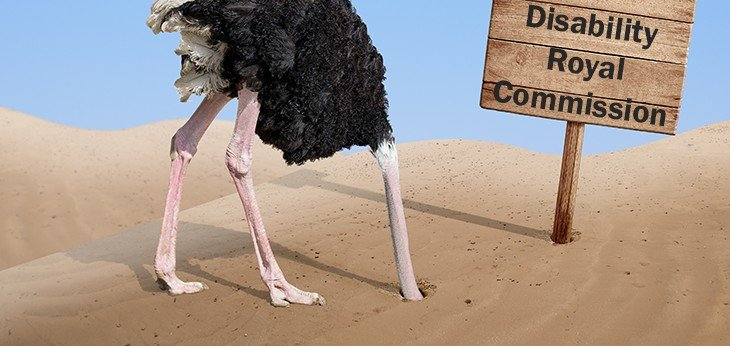First public sitting
The Royal Commission into violence, abuse, neglect and exploitation of people with disability (DRC) is holding its first public forums in September. The community forum in Townsville on the 9 September will be followed by the first public sitting in Brisbane on 16 September where the Commissioners are formally introduced. This will allow the public to hear how the Commission will operate, what the DRC hopes to achieve and how people can engage. Anyone can attend the events with prior registration. Live webcasts of both events can be accessed here.
Terms of reference
The Royal Commission was established on 4 April 2019 and will cover all forms of violence, abuse, neglect and exploitation of people living with disability, in all settings where they occur. The Commission is led by six Royal Commissioners and the Australian Government has committed $527.9m for the inquiry, which is expected to run for three years. In comparison, the Royal Commission into Aged Care Quality and Safety was led by two Royal Commissioners for 1.5 years and a $110m budget. The large budget for the Disability Royal Commission recognises the additional support needs of people with disability to participate in the inquiry. It acknowledges the wide-ranging scope, which considers what can be done by governments, institutions, providers and the community to:
- prevent, and better protect, people with disability from experiencing violence, abuse, neglect and exploitation
- achieve best practice in reporting, investigating and responding to violence, abuse, neglect and exploitation
- promote a more inclusive society that supports the independence of people with disability.
People with disabilities and stakeholders will have many opportunities to provide evidence and information and share their experiences. Anyone can make a submission and can receive legal advice and advocacy assistance.
Reactive or proactive response?
The outcomes of this Royal Commission will impact on all sectors that are supporting people with disabilities and will hopefully lead to wide ranging recommendations and reforms. During the investigation people with disabilities will share traumatic events and experiences and organisations may be summoned as witnesses before the Commission to give evidence or produce documents and information. The Commissioners have wide ranging powers to interrogate and to obtain evidence which can involve rights of entry and phone tapping.
The way your organisation chooses to act in the lead up and during the Royal Commission is an individual matter, however it may be perceived as an indication of your true colours and attitudes towards best practices and protecting people with disability. You may choose to bury your head in the sand and pretend that the DRC is not happening nor impacting on your organisation. Alternatively, you may take a ‘wait and see’ approach, and only react if needed. Choosing a proactive approach by anticipating the challenges and opportunities that lay ahead will differentiate your organisation. Your response may help to protect your credibility, reputation and consumer confidence if you decide to choose a clear position on the issues and demonstrate this in your actions.
- Is your organisation proactively preventing abuse and neglect?
- How does your organisation deal with incidents and risks?
- How does your organisation work to eliminate restrictive practices?
- How do you recognise and acknowledge mistakes and learn from them?
- Is everyone involved in the response, including the board?
- What is your organisation doing to actively support the outcomes of the DRC?
- How do you support your clients and their families who may choose to speak out?
- How do you involve and assist staff and other stakeholders?
- And how to you prepare in case you will receive a notice to produce documents, or your organisation will be invited as witness?
- Are your records in order and accessible?
- Who will lead a response and who can assist (insurance, legal support and communication)?
A disturbing finding from the Royal Commission into Aged Care Quality and Safety was that organisations had passed their accreditation standards despite very poor standards of care. This is highlighting that quality and safety is more than a tick box exercise and requires oversight and on-going commitment to standards that uphold fundamental human rights. Zero Tolerance is an initiative led by National Disability Services (NDS) to assist disability service providers to understand and prevent abuse. NDS is also providing information and workshops for disability service providers in preparation for the Royal Commission.






